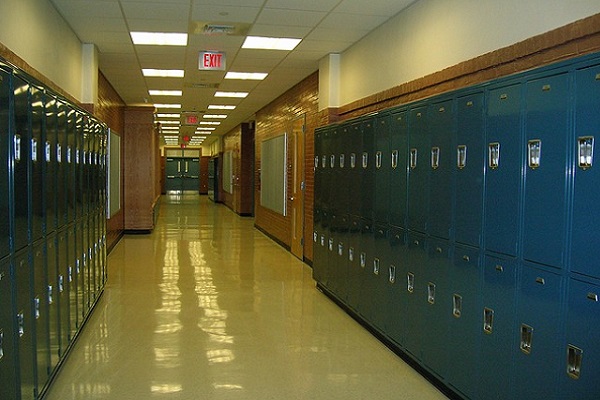
American Schools are Now Documenting Religious Discrimination
- By C Barnett --
- 25 Sep 2016 --

The U.S. Dept. of Education is implementing new measures requiring schools to report religious discrimination.
Recent events in 2015 and 2016 have served to put Muslims in the U.S. and indeed the rest of the world under considerable pressure from the rest of society. The rise of the terrorist organization ISIS and terrorist attacks in Europe, particularly in France, have served to stoke tension and religious discrimination against Muslims. Coupled with the rise of Donald Trump and his documented Islamophobic remarks, anti-Muslim rhetoric and hate crimes have been increasing in number in the U.S. public school system. This has prompted the U.S. Department of Education (DOE) to implement a raft of measures that will require schools to report the number and frequency of religion-based harassment of students.
American Schools are Now Documenting Religious Discrimination[/tweetthis]
The agency’s Office for Civil Rights has a new website, an online data collection platform and an online complaint form that will all be used by individuals seeking redress for discrimination in the country’s halls of learning. Catherine E. Lhamon, the assistant secretary for civil rights in the Department of Education noted, “Students of all religions should feel safe, welcome and valued in our nation’s schools. We will continue to work with schools and communities to stop discrimination and harassment so that all students have an equal opportunity to participate in school no matter who they are, where they come from or which faith, if any, they subscribe to.”
There are no laws in the federal government that directly prohibit discrimination on religious grounds. However, the Department of Education is relying on “Title VI of the Civil Rights Act of 1964 that protects students of any religion from discrimination, including harassment, based on a student’s actual or perceived:
- shared ancestry or ethnic characteristics,
- citizenship or residency in a country with a dominant religion or distinct religious identity
The DOE’s move comes in the wake of about 100 hate crimes that have been committed based on religious discrimination of Muslims. The statistic is from the Muslim Advocates Group. The Huffington Post has so far recorded 261 acts of anti-Muslim sentiment and political rhetoric and maintains a page on their website for tracking this phenomenon.
Other examples of discrimination include a 12-year-old boy in Long Island whose school principal forced him to sign a letter confessing that he was a terrorist working with ISIS. This is despite the boy, Nashwan Uppal having learning and communication disabilities. The family has filed a lawsuit against the school, and their lawyer David Antwork remarked, “They knew Nashwan and their own records described his disability, they knew he had severe language issues, communication issues, vocabulary issues, emotional issues, social issues. Those are not my words, those are their words from seven years in the special education department.”
In April, 50 Idaho State University students from Saudi Arabia and Kuwait were victims of burglary as well as victims of physical abuse and harm. In an email to students and faculty, the President of the University, Arthur Vailas commented, “As you know, the safety and security and wellbeing, both physical and mental, of our students are our preeminent focus. Any harm to our students impacts all of us negatively by diminishing the quality of our life because how can any one of us feel safe if others are in jeopardy? Our ability to attract and retain students who seek a college degree will be impacted because any crimes against students will discourage students from Idaho, the U.S. and the world from enrolling here. And lastly, harm to any person impacts our humanity.”


















